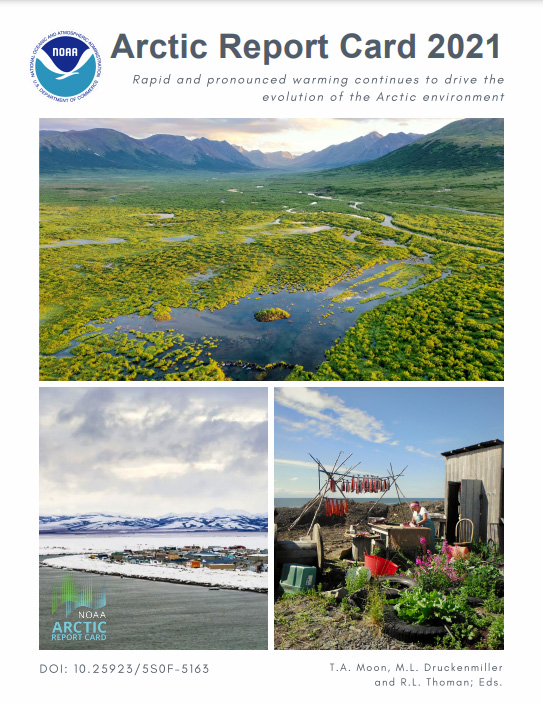UAF researchers contribute to Arctic Report Card

Eleven University of Alaska Fairbanks researchers contributed to the 2021 Arctic Report Card.
University of Alaska Fairbanks scientists are presenting their work at the American Geophysical Union’s fall meeting in New Orleans this week. This article is part of a series highlighting UAF research from the world’s largest Earth and space science meeting.
Eleven University of Alaska Fairbanks researchers are among the authors of the 2021 Arctic Report Card, an annual summary of the state of the Arctic environment produced by the National Oceanic and Atmospheric Administration.
The Arctic Report Card, which has been issued annually since 2006, is intended for a wide public audience that includes scientists, teachers and students. The Arctic is a particular area of focus for researchers because the region is being disproportionately affected by climate change.
The report was released on Tuesday at the fall meeting of the American Geophysical Union. Areas of focus in the report include oceans, weather, research and fisheries.
“It provides an annual update on the key things that are happening in the Arctic physical environment,” said Gabe Wolken, a geologist with the Alaska Department of Natural Resources and a research assistant professor at UAF’s International Arctic Research Center. “It uses data to provide an indication of how things are going in a part of the world that’s typically very difficult to measure.”
Wolken wrote a section in the report that highlighted emerging hazards related to permafrost and glaciers. Other UAF authors include Rick Thoman, Tom Ballinger, Uma Bhatt, Melinda Webster, John Walsh, Skip Walker, Ken Tape, Gay Sheffield, Benjamin Jones and Jason Clark.


